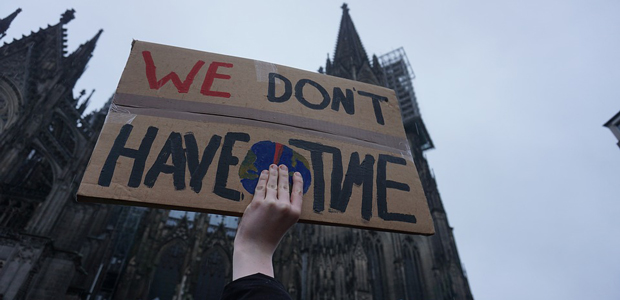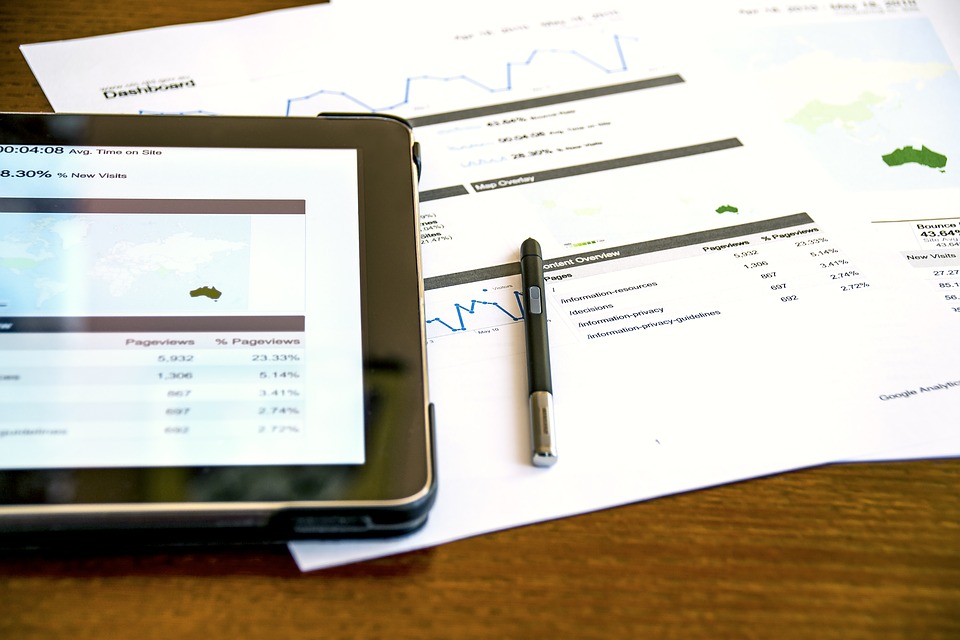
Using business SEO strategy to close the environmental crisis’ communication gap
We are failing to meet our CO2 emission goals, seeing widespread overexploitation, and entering a sixth mass extinction event. This doesn’t bode well for a strong economic future. The science screams for urgent action, yet society seems to be slumped, dragging its feet towards a more sustainable future.
What is causing this absence of action?
The UK media is failing on our environmental crisis, while in the U.S. only 1.2% of news communicates the issues. The lack of discourse, compounded by a rise of disinformation and fake news is creating a torrent that I label as our communication crisis.
I work for the tech startup Process Street, where we use Search Engine Optimisation (SEO) as a tool to communicate environmental problems, along with the solutions, as part of our sustainability strategy. In this article, I explain how we do this. I propose business action in the form of SEO for optimism to close our communication crisis for a more sustainable future, supporting our businesses, people, and our planet.
Sourcing Truth During a Communication Crisis
The shriek stifled into the shrouding mist. A limp body with wings dropping. All fell silent. The last of the species, gone for good.
The Great Auk was a species prized for its meat, oil, and feathers, but it succumbed to human greed and unsustainable practice. As the bird's numbers diminished, its economic value quadrupled from rarity.
The financial worth of these birds attracted man, with large sums given to those prepared to kill. The last breeding pair shrieked under man’s hand and the bird’s final paycheck was written, their offspring squelching beneath a leather boot.
Those that hunted these birds to extinction knew little about the finite and value of precious natural resources. As such, overexploitation ran rampant, spurred by disinformation labeling the birds as evil witches, an idea that inspired little empathy towards their final cries.
Moving forward from this 19th-century example into the present-day, humans haven’t gotten better at protecting Earth’s environment and its creatures.
- In 2019, Brazil’s National Institute for Space Research announced the recent acceleration of deforestation in the Amazon, increasing by 84%. This forest feeds rivers that generate 70% of South America’s GDP. It also sequesters ~86 billion tons of carbon dioxide, helping to stabilise our climate.
- Studies indicate the current species extinction rate is x1000 greater than the normal (background) rate of extinction. Biodiversity underpins economic activity, supporting agriculture, forestry, and fishery products in addition to stabilising natural hydrological cycles, fertile soils, and a balanced climate.
- 2019 reports indicate CO2 emissions are 4% higher than those in 2015. This means we are not on track to meet our climate targets, entering unknown territory with disrupted natural climatic cycles. Could the outcome be good? Judging by recent events, with an increased frequency in storms, scorching heat waves, and spreading droughts, I say no.
What have we learned?
The current trajectory doesn’t seem promising. With trees worth more dead than alive, we’re ravaging natural ecosystems to extinction, simulating the actions of our 19th-century ancestors but on a grander scale.
Continuing as normal will create a barren, deprived, hostile world for our children. It is a haunting thought, enough to inspire all-hands-on-deck action to do something and be more sustainable.
Yet this action seems lacking, why?
The communication crisis
I didn’t realise the full extent of our environmental crisis until I entered my 3rd year at university studying Global Change Biology. I came from lectures shaken, the perils of our environmental mess hitting me like a bullet to the gut. And it was us humans who held the gun.
I knew we had a problem, but I didn’t know it was this much of a problem.
Why did it take over £36,000 in tuition fees for me to fully understand my responsibility to address my unsustainable behaviors?
At the time (October 2015), Indonesia was burning yet news coverage focused on the Halloween episode of Dancing with the Stars. People were watching the wrong horror show as the headlines turned away from the real issue.
This absence of news-worthy attention is compounded with the risk of disinformation and fake news online. In 2016 the Oxford Dictionary selected post-truth as the word of the year, which is defined as:
“Relating to or denoting circumstances in which objective facts are less influential in shaping public opinion than appeals to emotion and personal belief”
How can we define information as false?
False information is information given that is not supported by observation and experimentation. That is, there is a strong scientific basis to ascertain the statement as wrong.
The 19th-century fishermen thought the Great Auks were witches. A belief that was driven by incorrect understanding and an absence of factual information — probably because this information wasn’t available at the time. Myths and ignorance of impact spurred continual exploitation. As a result, the blue economy suffered a fatal blow with the permanent loss of a valued natural resource.
Will history repeat itself?
“Climate change is a hoax.”
“The current extinction rates are natural.”
“The Earth has a superabundant supply of resources for indefinite use.”
The above are dubbed myths, spreading like the wildfires which sparked them. These myths are dangerous examples of false information threatening society with inaction to address our current environmental crisis.
When this communication spreads false information, concern creeps in.
There is a need to communicate the issues regarding our environmental crisis and the science supporting these conclusions more effectively. For instance, a mountain of evidence indicates the everlasting impacts of climate change, yet only ⅔’s of U.S. citizens are concerned about it.
This communication is central to shaping a societal understanding of the natural world and our influencing role. It is evident that important information is not reaching everyone and/or fake news is resonating more.
And so we have a communication crisis.
The question is, what can you and your business do about it?
Using Search Engine Optimisation to treat our communication crisis

Search Engine Optimisation (SEO) is a process of improving the quality and the number of web page or website traffic from search engines. By search engines, I am referring to Google which handles 90% of all online searches.
You can think of your SEO strategy as your means to establish a good relationship with Google. You want Google to favor your work so that the right content you and/or your content team have spent time working on hits the front page.
To do that, your SEO strategy needs to be on point.
When you consider that more than half of 18-34-year-olds consume their news online, you can see how SEO is a key antidote to treat our communication crisis. This is why at Process Street we use SEO as part of our business sustainability strategy.
So how do you get your SEO strategy right?
Below I have detailed 5 top tips to perfect your SEO strategy. These are tips I learned while producing content for Process Street’s blog. Using these top tips, numerous posts of mine are firmly placed on Google’s front page
SEO top tip #1: Remove anything that slows your site down
40% of people will abandon a site that takes more than three seconds to load. In addition, Google includes site speed as one of all the important page ranking factors. A slow page not only puts off your audience but also lowers the ranking score of your content.
Deactivate plugins, declutter your sidebar, include only essential widgets, reduce redirects and optimise images — these are all easy, simple ways you can speed up your site’s loading time.
SEO top tip #2: Optimise your keyword search
SEO keywords are words or phrases that will make it possible for users to find your content. You want to use keywords that have a high search volume. After all, why use a word that people aren’t searching for?
You also want to use keywords that are easy to rank highly for. That is, you want the keyword difficulty to be low — ideally lower than 40.
Sign up to SEO tools and resources such as Ahrefs or Moz’s Keyword Explorer to obtain volume and keyword difficulty information for your keywords. For instance, the top keywords I have targeted in the past include environmental management, corporate sustainability, and sustainable business. These keywords have a high volume and a keyword difficult less than 40.
SEO top tip #3: Get more backlinks
Think of inbound links (a link from another website or page) as the lifeblood of search engine rankings. Having authoritative sources link to your site, blog, and the content will create a link profile that Google naturally rewards.
Once more, if you’re using searchable keywords that appear on Google’s front pages, readers of your content will instinctively link back to you, helping you passively build up your backlinks.
SEO top tip #4: Write a unique and relevant meta description for every page
A meta description is the first thing that people see when Google serves your page to the search users.
Google will penalise you for duplicate content (including meta descriptions), so make sure your work is unique. If you are using WordPress, it’s easier to create distinct, individual meta descriptions by installing the All-In-One-SEO Pack or Yoast plugins.
SEO top tip #5: Create and publish unique content consistently
Content creation requires commitment and discipline to write engaging, useful pieces regularly for your audience.
Published content will be given a freshness score which is based on the article's inception date. Google favors up-to-date websites and pages, so to maintain a high freshness score you want to publish and update your content consistently.
Use SEO as part of your business sustainability strategy
Google is used increasingly as the primary source of information. People are turning to the digital world to find out more about the real world around them.
Access to correct information is a human right. An absence of a clear, effective message regarding our environmental crisis, and what can be done on an individual and business level seems to violate this right. This is hugely concerning as we are regarding an issue that, if not mitigated appropriately, will significantly alter the functioning of society, our businesses, and the economy.
SEO gives power back to businesses and you to empower society to leap into a new, more sustainable future that applauds green action for better societal, business, and planetary health.
To ensure that your content is continually SEO-optimised, you’ll want to document, create, and follow an SOP — a standard operating procedure, ideally in the form of a checklist. By checking off each SEO step and best practice as you go, you can rest assured that you’re using SEO’s power for good.
Play your part. Optimise your SEO strategy and put our communication crisis to a close.

